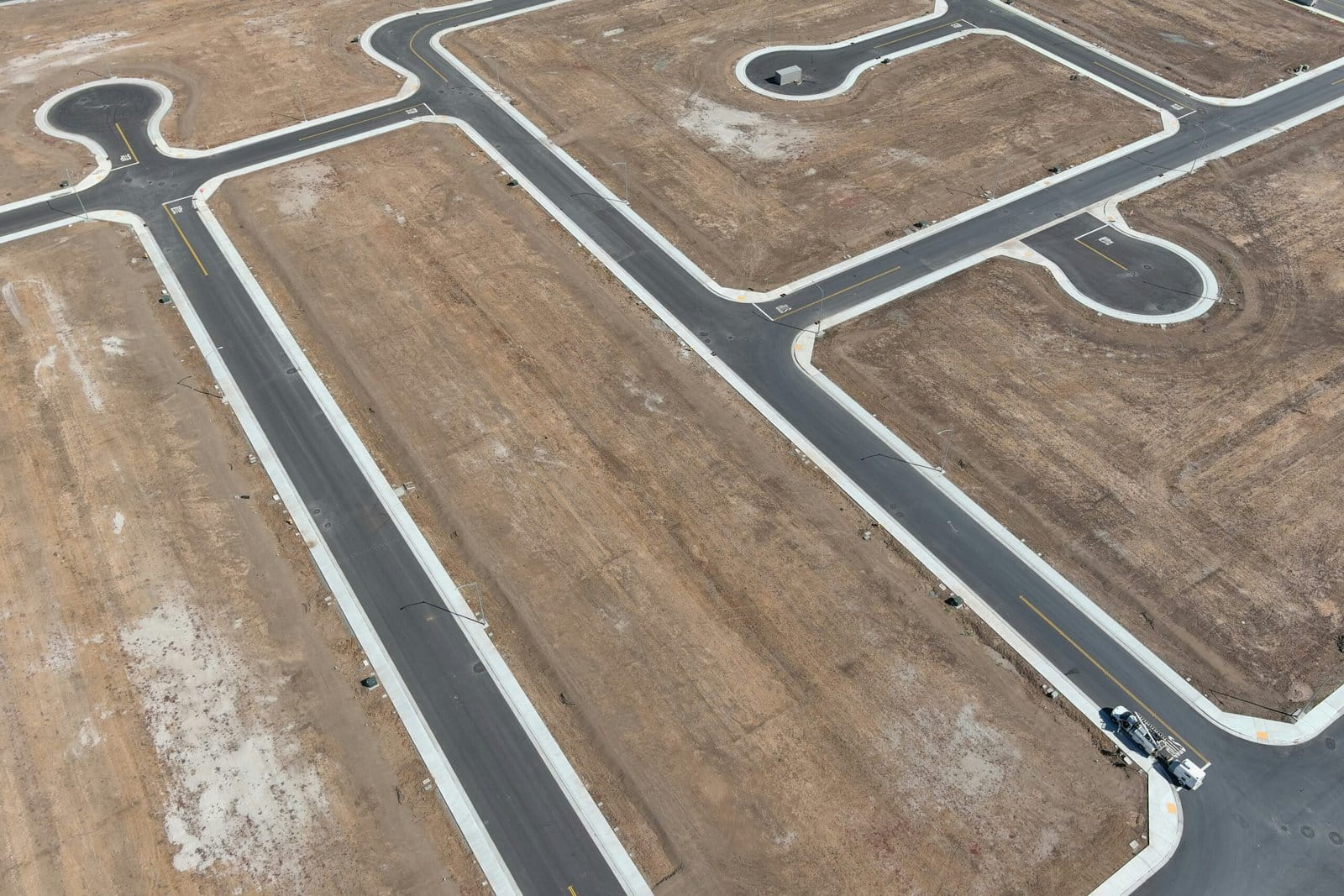
Greek Land Development
The landscape of Greek land development is deeply intertwined with the nation’s rich cultural heritage and historical significance. Greece, known for its ancient ruins and breathtaking natural beauty, offers a unique canvas for land development that must be approached with sensitivity to its past while innovating for the future. The combination of cultural preservation and modern advancements presents both opportunities and challenges for developers. It is within this context that the role of organizations such as Stargate Group becomes increasingly relevant, as they seek to navigate the complexities of the Greek market.
Currently, Greek land development is in a transformative phase. The country has been striving to rejuvenate its economy, particularly following the financial crises of the past decade. However, the sector is not without its challenges. Regulatory hurdles pose significant obstacles, often resulting in prolonged approval processes and red tape that can stifle innovation. Developers must also contend with economic factors, such as fluctuating market conditions and the need for sustainable investment, particularly in the wake of growing environmental concerns.

Environmental considerations play a crucial role in Greek land development. With its diverse ecosystems and rich biodiversity, any development project must carefully evaluate its potential impact on the environment. This requirement enhances the importance of sustainable practices and ethical design approaches, ensuring that modern development aligns with environmental stewardship. Given the significance of these elements, the involvement of experienced groups like Stargate Group becomes essential in creating strategies that address these challenges while fostering progress.
In conclusion, Greek land development is a multifaceted field combining heritage and modernity. By addressing the complexities inherent in this unique market, stakeholders can contribute to a sustainable and thriving future for land development in Greece.
Overview of Stargate Group’s Vision
Stargate Group stands at the forefront of Greek land development, driven by a distinctive mission that emphasizes both innovation and sustainability. The company’s vision encompasses an unwavering commitment to transforming landscapes while prioritizing environmental stewardship. By integrating cutting-edge technology with traditional practices, Stargate Group aims to create developments that not only enhance the aesthetic and functional aspects of land but also promote ecological balance.
At the core of Stargate Group’s philosophy is the belief that development should harmonize with the natural environment, thus reducing the ecological footprint of their projects. The company implements sustainable practices throughout the entire life cycle of their developments, from conceptual planning to execution and maintenance. This approach is reflective of a broader industry trend where developers are increasingly recognizing the importance of integrating sustainability into Greek land development, ensuring that projects benefit not just the economy, but also the communities and ecosystems involved.
Moreover, Stargate Group actively engages with local communities to understand their needs and aspirations. This community-oriented approach ensures that developments resonate with the people they are meant to serve, further solidifying Stargate Group’s position as a leader in Greek land development. By fostering partnerships with local stakeholders, the company cultivates a sense of ownership and pride among residents, enhancing the social fabric of the areas they develop.
In the ever-evolving landscape of real estate and development, Stargate Group emerges as a pioneering force. Their dedication to innovative solutions, sustainable practices, and community engagement exemplifies a new frontier in Greek land development. As they continue to set benchmarks in the industry, the lessons gleaned from their approach provide valuable insights that can inspire other organizations in the field.
Sustainable Development Practices
The concept of sustainable development is increasingly vital in the context of Greek land development, particularly as environmental concerns escalate. Stargate Group stands at the forefront of this initiative, employing practices that not only enhance the usability of land but also safeguard the ecological balance. By integrating innovative techniques, the group demonstrates a profound commitment to minimizing environmental impacts in their projects.
One of the noteworthy strategies adopted by Stargate Group encompasses the use of green building methods. These methods prioritize materials and processes that are environmentally responsible and resource-efficient, from the planning stages through to construction and operation. For instance, the utilization of locally sourced materials significantly reduces transportation emissions while supporting the local economy. Furthermore, buildings are designed to encourage natural light and ventilation, subsequently lowering energy consumption and improving indoor air quality, both of which align well with the ethos of sustainable land development.
Energy efficiency remains a cornerstone of Stargate Group’s projects. Incorporating advanced technologies such as solar panels and energy-efficient appliances not only supports the health of the environment but also positions Greek land development in line with future energy policies and regulations. In addition to reducing carbon footprints, these technologies potentially lead to cost savings for future occupants, highlighting the dual benefits of these practices.
Another critical element of Stargate Group’s approach is the preservation of natural landscapes. Recognizing the unique environmental and cultural significance of Greece’s diverse terrains, the group engages in careful planning that respects the existing ecosystem. By implementing strategies that protect biodiversity and promote reforestation, the group not only enhances property value but establishes a legacy of responsible development. The emphasis on sustainable practices in land development by Stargate Group underscores the integral relationship between ecological stewardship and economic growth in Greece’s evolving landscape.
Utilization of Advanced Technologies
The integration of advanced technologies into Greek land development has shown immense potential to enhance efficiency, planning, and resource allocation. One of the key players in this transformation is the Stargate Group, which has adopted various innovative tools to streamline their processes. Among these, Geographic Information Systems (GIS) stand out as a critical component that facilitates the visualization and analysis of spatial data. By leveraging GIS technology, Stargate Group can effectively assess land use patterns, identify environmental constraints, and optimize site selection, ensuring that their developments are strategically positioned and sustainable.

In addition to GIS, smart city solutions are becoming increasingly prominent in contemporary land development projects. Stargate Group actively implements these solutions to create urban environments that promote technological connectivity and improve the quality of life for residents. Through the use of IoT (Internet of Things) devices and data analytics, the company can enhance public services, streamline transportation systems, and ensure efficient energy management. This holistic approach to urban planning not only benefits the immediate community but also aligns with broader goals of sustainability and smart resource use in Greek land development.
Moreover, effective project management software plays a pivotal role in coordinating the diverse facets of development projects undertaken by the Stargate Group. By utilizing specialized platforms for task tracking, budgeting, and stakeholder communication, the company ensures that projects adhere to timelines and budgets while minimizing risks. This increased level of organization allows for better oversight and resource allocation, ultimately leading to more successful outcomes in land development endeavors.
Through the strategic incorporation of these advanced technologies, Stargate Group exemplifies how modern land development in Greece can evolve to meet contemporary demands, paving the way for future innovations and sustainable practices.
Community Engagement and Stakeholder Collaboration
Effective community engagement and stakeholder collaboration are essential components of successful Greek land development initiatives. The process not only helps in addressing the immediate needs and concerns of local populations but also fosters a sense of ownership and commitment toward development projects. Stargate Group prioritizes these elements, recognizing that meaningful participation from local communities enhances project viability and can lead to sustainable development outcomes.
To initiate community engagement, Stargate Group employs a multifaceted approach. It begins with outreach programs that aim to inform stakeholders about proposed developments, ensuring transparency from the outset. This proactive communication strategy includes hosting informational meetings, workshops, and community forums where local residents are encouraged to voice their opinions and concerns. Stakeholders range from community leaders and local government officials to businesses and residents, all of whom play a crucial role in shaping the direction of projects. By facilitating this open dialogue, Stargate Group seeks to gather invaluable insights that can inform project design and implementation.
Furthermore, collecting feedback from community members allows Stargate Group to identify potential obstacles early in the development process. These insights are instrumental in making necessary adjustments, ultimately leading to increased community support. By fostering collaborative relationships with stakeholders, the Group not only addresses community needs but also mitigates opposition often associated with new developments. This holistic approach cultivates an environment of trust and cooperation between developers and the community, promoting social cohesion and long-term investment in the project’s success.
In conclusion, the effective integration of community engagement and stakeholder collaboration is central to successful Greek land development efforts. Through its commitment to these principles, Stargate Group exemplifies how partnerships with local communities can lead to innovative and sustainable land development solutions.
Navigating Legal and Regulatory Frameworks
The landscape of land development in Greece is characterized by complex legal and regulatory frameworks that developers must navigate meticulously. The regulatory environment encompasses a multitude of zoning laws, permitting processes, and environmental regulations designed to protect both agricultural lands and natural reserves. These regulations, while essential for sustainable development, often present challenges that can delay projects and increase costs for developers.
Zoning laws serve as the first hurdle in the Greek land development landscape. They dictate how land can be utilized, defining the permissible types of construction and development in various regions. With territory often split between private and public ownership, developers, including those working with the Stargate Group, must thoroughly understand local zoning ordinances. Failure to comply can lead to costly rescinding of permits, redesigning of plans, or even legal action from the local authorities.
In addition to zoning laws, securing the necessary permits for land development presents its own complexities. The permitting process in Greece can be lengthy and cumbersome, requiring developers to engage with multiple government agencies. This often includes gathering documentation that demonstrates compliance with safety, architectural, and environmental standards. The Stargate Group, leveraging its extensive experience in Greek land development, has established strong relationships with local authorities, facilitating the permitting process and minimizing delays.
Furthermore, environmental regulations are increasingly stringent, requiring developers to conduct assessments that evaluate the potential impacts of their projects. This entails compliance with both EU directives and Greek laws aimed at preserving the environment. The Stargate Group excels in this arena by incorporating sustainable practices in their development strategies, aligning projects with regulatory requirements while also catering to eco-conscious consumers. By proactively addressing these legal and regulatory challenges, the Stargate Group not only ensures compliance but also enhances the feasibility and success of their developments.
Case Studies of Successful Projects
The Greek land development sector has witnessed several noteworthy projects, notably those executed by Stargate Group, which exemplify innovative strategies and effective execution. These case studies provide valuable insights into how challenges can be navigated and objectives achieved in this sector.
One prominent example is the development of a sustainable residential community in the outskirts of Thessaloniki. The objective was to create an energy-efficient neighborhood that harmonizes with the local environment. Stargate Group implemented innovative design strategies, such as integrating renewable energy sources and utilizing local materials. Throughout the project, they faced challenges related to regulatory approvals and community acceptance. However, through transparent communication and adaptive project management, they successfully overcame these obstacles. Ultimately, the neighborhood not only met established sustainability goals but also fostered a sense of community among its residents.
Another significant project involved the revitalization of coastal land in Crete, aimed at promoting tourism while preserving the natural landscape. The company’s strategy included collaborating with local stakeholders to ensure that the development aligned with ecological preservation efforts. Challenges included balancing development with environmental concerns, yet the Stargate Group employed advanced environmental impact assessments to guide their approach. As a result, this project attracted a substantial influx of tourists, leading to improved local economies while still maintaining ecological integrity.
In addition to these projects, Stargate Group has successfully transformed urban areas through mixed-use developments in Athens. These ventures focused on creating spaces that combine residential, commercial, and recreational facilities. The main challenges were overcoming urban regulations and transportation logistics. By employing innovative planning and stakeholder engagement, these challenges were addressed effectively. The outcomes resulted in revitalized urban spaces that enhanced city living while maximizing land use efficiency.
These case studies illustrate the successful application of innovative strategies in Greek land development by the Stargate Group. They underscore the importance of adaptive planning, community involvement, and sustainable practices in achieving project objectives.
Future Trends in Land Development in Greece
The landscape of land development in Greece is undergoing significant transformation, shaped by a multitude of factors including economic conditions, demographic trends, and technological advancements. As the demand for residential, commercial, and recreational spaces evolves, innovative strategies have become essential for companies like Stargate Group to remain competitive in the market. Understanding these future trends is crucial for ensuring the sustainability and growth of Greek land development.
One notable trend is the increasing emphasis on sustainable development practices. As environmental concerns rise, there is a growing demand for projects that minimize ecological impact and promote resource efficiency. Developers are now integrating green technologies into their designs, such as renewable energy sources, water conservation systems, and eco-friendly materials. Companies are also prioritizing the restoration of natural habitats, promoting biodiversity within urban planning frameworks. Stargate Group is ideally positioned to take advantage of these shifts, leveraging its experience in eco-conscious design to attract clientele seeking sustainable options.

Technological advancements are another vital component driving change in Greek land development. The adoption of smart city concepts and digital tools such as Building Information Modeling (BIM) allows for enhanced planning and project management. Using data analytics, developers can better predict market trends and tailor their offerings to meet the needs of various demographics. With the emergence of remote work and urbanization, there is also a notable shift towards mixed-use developments that blend residential, commercial, and recreational spaces. Stargate Group can capitalize on this trend by creating multifunctional spaces that cater to modern living requirements.
In summary, the future of Greek land development is marked by a focus on sustainability and technological integration. As companies adapt to these emerging trends, it will be essential for entities like Stargate Group to innovate continuously and embrace change in order to thrive in an evolving industry landscape.
Conclusion and Call to Action
Throughout this blog post, we have explored the innovative strategies employed by Stargate Group in the realm of Greek land development. By prioritizing sustainability and technological advancement, Stargate Group exemplifies how forward-thinking approaches can shape the future of land use in Greece. The emphasis placed on environmental preservation and community engagement has proven to be not only beneficial for the ecological landscape but also for enhancing the socioeconomic conditions of local populations.
The integration of smart technologies and sustainable practices is essential for addressing the unique challenges inherent in Greek land development. As demonstrated by Stargate Group, employing such strategies fosters a symbiotic relationship between development and the environment. This can lead to improved construction methods, optimized resource management, and a heightened awareness of the importance of preserving natural heritage. Stakeholders in land development projects, including policymakers, developers, and community leaders, are encouraged to adopt similar innovative frameworks that incorporate sustainability into their core objectives.
Moreover, collaboration among diverse sectors is vital in promoting sustainable land development initiatives. By uniting various stakeholders, including local communities, governments, and private entities, a holistic approach can be developed, ensuring that everyone participates in and benefits from the land development process. This will not only enhance the quality of life for residents but also protect Greece’s unique terrestrial ecosystems. Stakeholders are urged to take inspiration from the examples laid out by Stargate Group and commit to fostering sustainable practices in their projects.
As we look ahead, it is imperative that we embrace innovation within Greek land development. By doing so, we can ensure a more sustainable, equitable, and prosperous future for all those involved and affected by these developments.


